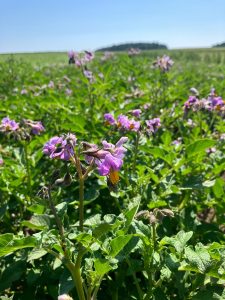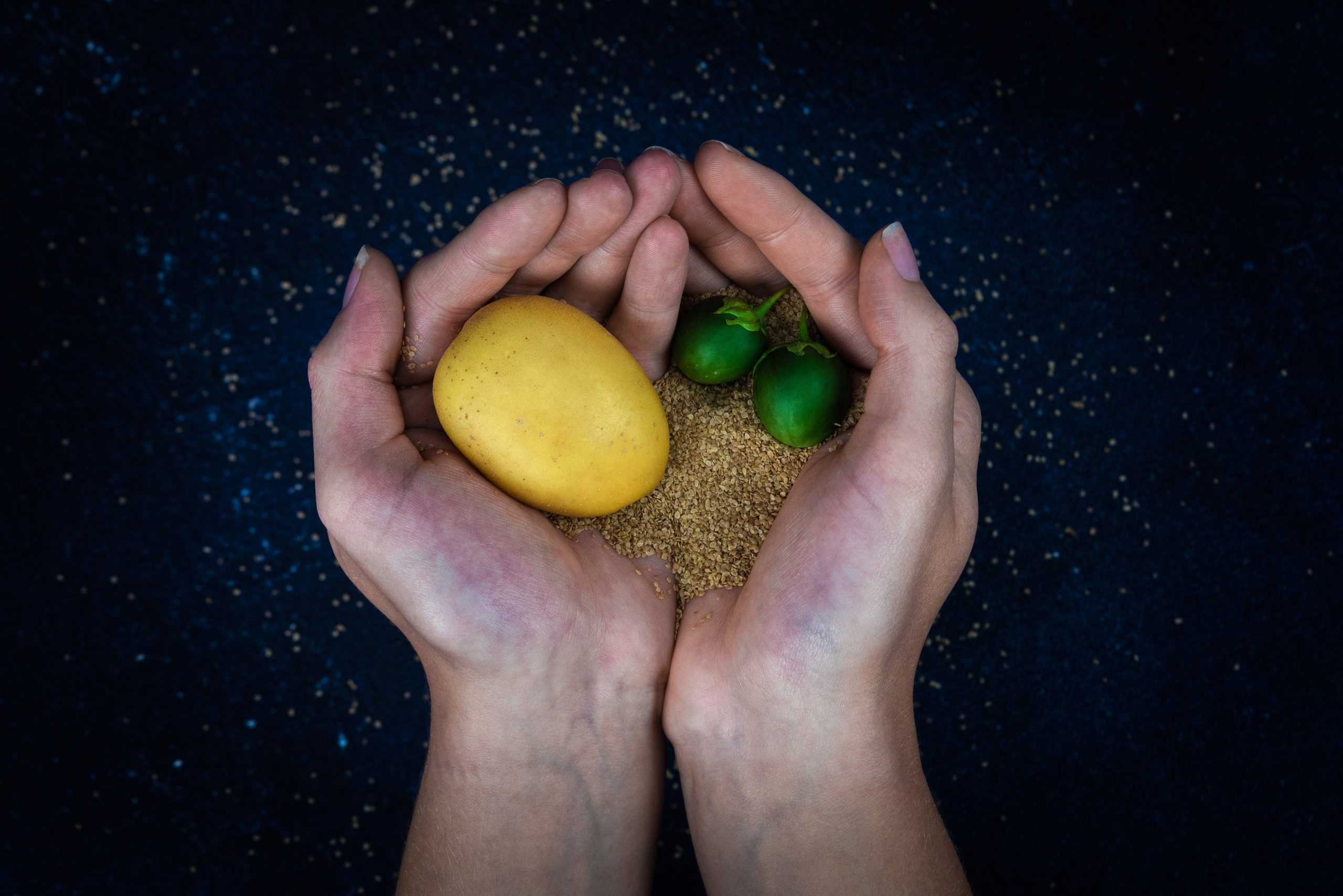Solynta’s innovative hybrid potato seeds offer faster breeding times, resistance to late blight, reduced pesticide use
Late blight is a devastating fungal disease that ravages potato farming and is primarily responsible for Ireland’s Great Famine of the mid-1800s that killed one million people. Late blight still wreaks havoc on potato farms worldwide, causing more than $10 billion in damage each year.
Dutch company Solynta may have discovered a solution: a non-GMO hybrid potato variety that has been shown to be resistant to late blight while providing greater options to farmers worldwide as they adapt to climate change.
Developed first hybrid potatoes from seed
“Solynta was founded on a dream that we need to have potatoes, a staple food, become more sustainable, more available, and more adaptable,” says Charles Miller, Solynta’s director of business development.
Solynta has done something that has never been done before: develop hybrid potatoes from seeds. Potatoes have traditionally been developed using seed tubers, which are the thick underground stems of a potato. The problem is that tubers are prone to damage by fungi and other diseases. They are also bulky and hard to store.
Solynta’s non-GMO breeding technology makes breeding new potato varieties much faster. With hybrid breeding, two genetically different parent lines are produced. The hybrid offspring are bigger, more productive and more resilient than the parent lines. Crops such as corn, sugar beet, rapeseed, rye, and sunflowers are developed using hybrid breeding. But, because of their genetic complexity, potatoes haven’t been able to be hybridized until Solynta’s plant breeders developed the technology to do so.
Solynta’s technology allows for the use of Hybrid True Potato Seeds (HTPS). “We deliver a product in a true seed, just like you would get with a pepper seed, a tomato seed, or a wheat seed,” Miller says.
This innovation in breeding allows potato varieties to be developed in 2-5 years instead of the 10-15 years it takes to develop potatoes using current breeding methods.
The HTPS system also allows for cross breeding of new varieties that have enhanced pest and disease resistance and are adapted to harsher climates, making potatoes a suitable crop for many climates.
Solynta’s breeding methods are non-GMO. “We try to stay up to speed with all of the newest technologies, but our breeding is non-GMO,” Miller says. The company uses genome maps to identify the traits they want to breed into their potatoes.
Resistance to late blight, reduces need for pesticides

Solynta’s potato plants flowering in field
Resistance to late blight is one of the major benefits of Solynta’s hybrid seeds. According to Miller, 30% of the world’s potato production is lost due to late blight. “That means a lot of people potentially go hungry,” he says.
Solynta tested its potato variety this past year in Ireland. The trial involved comparing a Solynta potato variety with enhanced late blight resistance to three local commercial varieties, two of which were recognized as having good “resistance” to late blight. The field trial experienced unusually high late blight pressure, which eventually killed all three commercial varieties. But the Solynta variety withstood the intense pressure, producing the highest yields in kilograms as well as the highest number of potatoes per plant at harvest.
Farmers benefit. “This kind of trait being implemented into the potato can really help increase food security and grower economics,” Miller says.
Late blight resistance can also significantly reduce the amount of chemical pesticides that are often used on potatoes to treat late blight. The cost for such chemicals is more than 300 million euros per year in the European Union.
“Agriculture today is a heavy chemical user, whether with pesticides, herbicides, or even fertilizers. That’s simply not sustainable,” Miller says.
Farmers in Africa are growing Solynta’s hybrid potato seeds organically. At Mlango Farm, an organic farm in Kenya, farmers have been able to successfully grow Solynta’s hybrid seeds for the past three years. Organic farmers in Namibia are also growing Solynta’s hybrid seeds.
There are other benefits to Solynta’s hybrid potato seeds. While it takes 2,500 kilograms (5511 pounds) of seed tubers to plant one hectare of potatoes, it only takes 25 grams, less than one pound, of Solynta’s potato seeds to plant the same area. Labor, storage, and transportation costs are also much less with Solynta’s seeds than with tubers.
There are challenges. The new potato breeding method requires a new system to grow potatoes from seed instead of tubers. While tubers are planted directly into the ground, Solynta’s seeds must first grow into seedlings in nurseries before planting. Though the potato seedlings can then be planted using the same equipment that’s used to plant tomatoes and other vegetables.
“We need to understand these nuances and we need to work with the entire value chain to build that system,” Miller says. “What we’ve focused on is building a new ‘road’ to produce potatoes in a different way.”
Partnerships
After developing hybrid seeds for 10 years, Solynta is now focusing on getting its seeds into the hands of farmers in as many regions worldwide as possible. The company has established partnerships with food and agricultural companies to do so. Last March, Solynta and PepsiCo’s Ethiopia-based Foods Unit, Senselet Food Processing PLC launched a project to introduce hybrid potato seeds to Ethiopia. There is a partnership with South African seed potato producer RegenZ to bring hybrid seed potatoes to South Africa’s farmers. This past November, Solynta teamed with European horticulture company Agris introduce hybrid potato seeds in six different countries within central Europe. In December, Solynta met with representatives of Egyptian agriculture company Greenbridge to start a collaboration on growing potatoes from hybrid potato seed in Egypt, which is one of the world’s fastest growing exporters of potatoes. Solynta is also working with a major grocery chain in Belgium to produce the hybrid potato seeds organically for the consumer market.
Solynta is gaining recognition for its innovative potato breeding. The company received the “Overall Food Quality Solution of the Year” award at the 2023 AgTech Breakthrough Awards.
Miller says Solynta’s vision is creating food security and farmer wellbeing including economically and increasing the sustainability of the planet and longevity of the farming system.
“It’s basically creating a good stable income for farmers, not just to wealthy countries, but globally,” he says.









